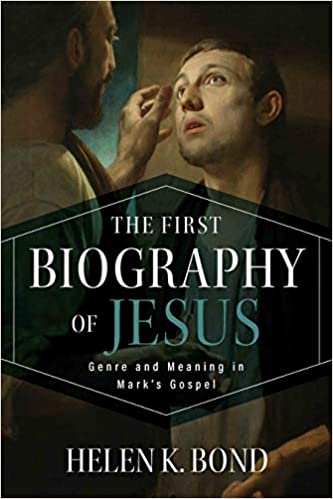BEN: On p. 80 you suggest that it doesn’t much matter whether ‘the reader’ in Mark 13 is the audience or a lector. It seems clear to me from Rev. 1.3-4 that a distinction was made between the reader, and those who heard the text, the former being a literate person, who could even decipher the continuous flow of letters in an ancient text. I think it does matter in Mark 13 that when Mark says ‘let the reader understand’ he is not addressing the audience, he is addressing the lector who must explain the apocalyptic image of the abomination that makes desolate, perhaps because the audience is largely Gentile and unfamiliar with Daniel. In any case, the very form of these early documents coupled with the literacy rate makes it very unlikely indeed that we should envision the audience as the readers of Mark’s Gospel. All these texts were mediated to Christian audiences by a more literate and knowledgeable member of the group, surely one of the more socially elite persons like a Phoebe who likely read out Romans to the recipients in Rome. There is another reason why this is important—- these are oral texts, texts meant to be heard, and they bear the features like assonances, alliteration etc. of good oral texts, where the sound is part of the package. It takes a knowledgeable reader to perform these rhetorically shaped texts in a persuasive or at least adept manner. Would you strongly disagree with this? Why do you think it doesn’t matter who ‘the reader’ is?
HELEN:
I agree with you completely! I spend a lot of time (perhaps too much!) on the question of Mark’s earliest recipients being a listening audience, and I argue that many of the features which have often been identified with a ‘residual orality’ in Mark are actually a deliberate aping by the author of a more colloquial manner of speech for a largely illiterate audience. So predominantly, the ‘reader’ here in Mk 13 is the lector, and the stage direction (assuming it’s original) is a signal to him or her to pause here and perhaps to explain the reference. These group meetings around shared texts (whether ‘cultic’ or not) were incredibly important for creating a sense of group identity amongst the earliest Christ-followers (I’m influenced by William Johnson’s work here). But I wouldn’t completely rule out the possibility of educated followers reading the texts themselves – I doubt that Matthew, Luke and John’s only exposure to Mark was aural. And they can’t have been the only people to read the text in this way.













